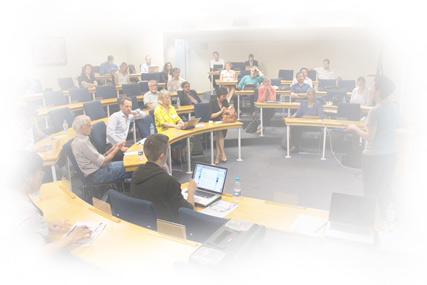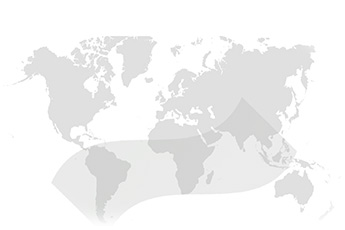What are OER and where you can find them
Open Educational Resources (OER) can be defined as teaching, learning, and research resources that reside in the public domain or have been released under an intellectual property license that permits their free use and/or re-purposing by others (Hewlett Foundation).
OER include full courses, course materials, modules, textbooks, streaming videos, tests, software, and any other tools, materials, or techniques used to support access to knowledge.
Textbooks and MOOCs (Massive Open Online Courses) can also be OER:
- If conventional textbooks have been created, saved and made available, as OER, then they are known as open textbooks. Examples are the South African maths and science high school textbooks created by Siyavula
- The “open” in MOOCs refers to the courses being openly accessible to anyone. If, however, MOOCs are created using openly licensed re-usable lectures, videos, images, assessments etc, and released as re-usable, with open licenses, then they are OER.
The most frequently used intellectual property rights mechanisms used to indicate the permissions for the creation and reuse of OER are Creative Commons (CC) licenses. These indicate the original authors’ permissions for reuse (copying), revision (customisation, including translation) and remixing (or combination with other materials), which allow for the legal redistribution and retention of the original or adapted materials.
OER have been made available through a range of OER global initiatives, repositories and portals (e.g. OpenUCT at the University of Cape Town ).
As an indication of the expectation of the potential benefit of OER to widen access to quality education and make it more affordable, the United Nations Educational, Scientific and Cultural Organisation (UNESCO) released the Cape Town Open Education Declaration. Funding allocated to OER development in the United States and more recent priorities identified by the European Commission (2012) provides evidence of the OER principles in practice.
The Commonwealth of Learning runs a OER Frequently Asked Questions (OERFAQ) Community of Practice. Register here.
The case for OER
There are a number of challenges facing education, including ways to meet the demand for relevant, good quality, affordable education in a context where universities and colleges are under financial pressure and have limited human resources. Added to this the student population, especially in the Global South, is increasing rapidly as universal primary education increases. OER, as cost-effective teaching and learning materials, has been regarded as a potential solution to some of these problems.
OER exhibits a number of affordances, the most important of which are the:
- adaptability or customisability of existing educational materials
- flexibility of selection, reuse, revision and/or remixing
- visibility, findability/discoverability and searchability of materials
- collaboration on the development of materials
- productivity of the materials development process
- accountability of the materials developers who will be attributed for the materials
- scrutiny of OER that hopefully encourages the quality of the materials
- shareability or spreadability of materials on a global scale
- scalability of reach to anyone with Internet connectivity and a device that allows for reading, watching, responding and/or adapting materials.
According to UNESCO, OER can help improve education across the globe:
- For students, OER offer free access to courses and even degree programs. They can also offer huge cost savings as alternatives to expensive textbooks.
- For teachers, ministries of education and governments, OER provide free and legal access to some of the world’s best courses. Educators can then adapt them to local languages and cultures and use them as a basis for innovation.
- OER make it possible for people of all ages and backgrounds to learn more about the world around them and access the tools they need to improve their lives and livelihoods.
Developments in the OER movement
One of the earliest proponents of OER (although the name OER came later) was the Massachusetts Institute of Technology (MIT). In 1999, MIT Faculty considered how to use the Internet in pursuit of MIT’s mission to advance knowledge and educate students and in 2002 the MIT OCW receives over 2 million visits per month.
In 2002 UNESCO organized the 1st Global OER Forum in 2002 where the term Open Educational Resources (OER) was adopted. Prior to this a number of terms were used including “open content”, “learning objects”, “digital learning resources”, and “reusable digital learning resources” and some continue to be used as synonyms to OER.
Apart from funding by the Hewlett Foundation for various OER initiatives, OER are encouraged and supported by (among others) Open Education Consortium. They hold annual conferences to spread Open Education across the world and host events such as Open Education Week.
Researching OER
As a number of philanthropic foundations and a few governments have already committed substantial funding to OER initiatives, and international agencies such as UNESCO and COL have called for extended commitment to OER, especially by countries in the Global South, it is necessary to search for evidence of how OER creation and use are influencing educational practices and policy in the Global South. This will help to ensure that education policy development initiatives and further expenditure by philanthropic foundations and governments are indeed achieving the outcomes of resourcing easily accessible, socially acceptable, high quality and affordable post-secondary education in the Global South.
The so-called geo-political Global South has many problems that are similar to those experienced globally (for example: high cost of textbooks), but there are other problems unique to emerging economies, that require more attention by researchers (for example: how to use technology in areas where electricity supply is erratic).
Various people or projects are researching the use and impact of OER. Some examples are the UK based OERHub at the Open University – UK, and our own ROER4D project hosted by the University of Cape Town in South Africa.
The ROER4D bibliography provides easy access to a body of OER and open education research and includes peer reviewed articles, book chapters and reports.
(Parts of this page were adapted from Hodgkinson-Williams, C.A. & Cox, G. (2015). CILT Position Paper: Open Educational Resources. CILT, University of Cape Town, available on http://open.uct.ac.za/handle/11427/14040)


